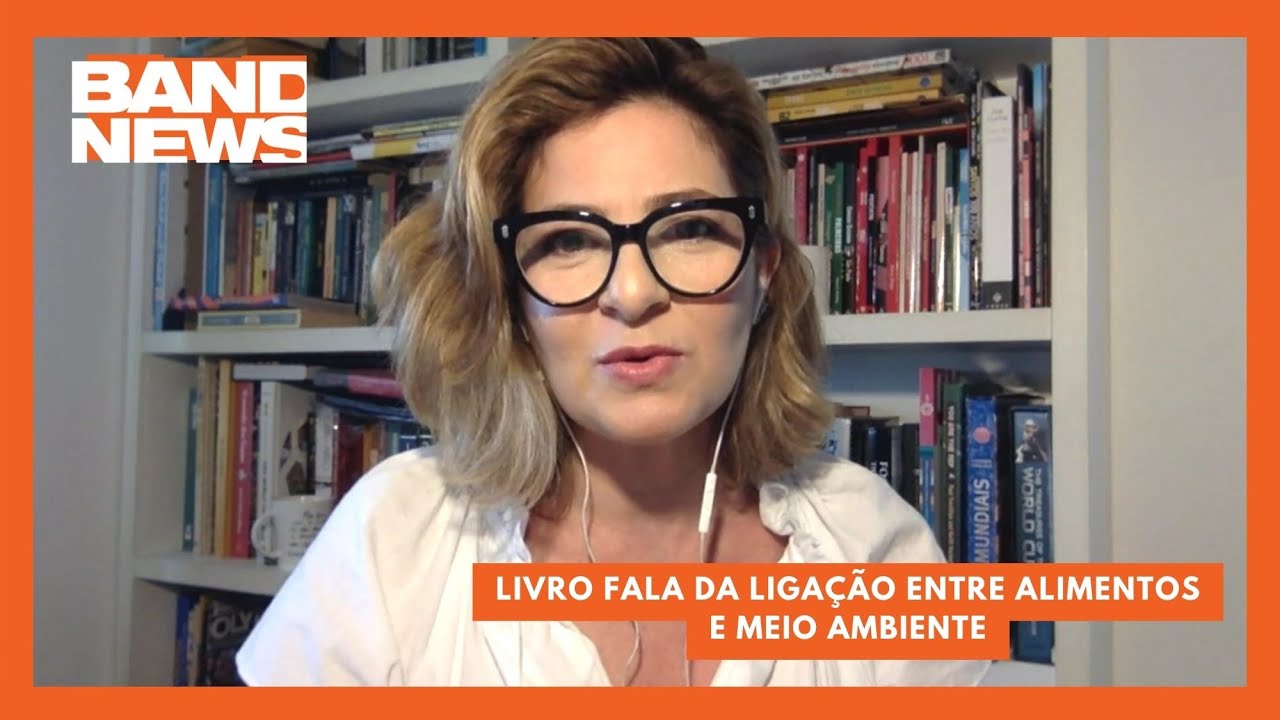Livro Fala Da Ligação Entre Alimentos E Meio Ambiente | Bandnews Tv
Unleash Your Creative Genius with MuseMind: Your AI-Powered Content Creation Copilot. Try now! 🚀
Introduction
In the book "O que vai ter para comer" (What Will We Have to Eat), authors Maísa Zaku and Ariela Doctor shed light on the importance of the food we consume and how it can affect the planet. The book, targeted towards teenagers and young adults, aims to educate and create awareness about how food is produced, particularly emphasizing regional and traditional cuisines.
In a recent interview, Maísa Zaku discussed the motivation behind the book and the need for young people to think consciously about their dietary choices. She highlighted how, in the past, the focus was solely on convenience and taste, without considering the long-term health and environmental consequences.
Inviting Young Minds to Ponder
Maísa Zaku and Ariela Doctor's book takes a unique approach by inviting young readers to engage in critical thinking about what they put on their plate. This novel concept encourages children to question and reflect on their food choices - a practice that was uncommon during our own childhood. Maísa reminisces about her own childhood, where snacking on packaged chips and biscuits was the norm, as it was easy to take them to school. However, there was little awareness about the harmful effects of consuming ultra-processed foods.
The authors aim to address this lack of awareness and bring about a paradigm shift in how we approach food from an early age. They have divided the book into six chapters, which cover a range of topics from the discovery of cooking with fire to the significance of regionally produced and traditional foods.
Enlightening Young Minds about Food
The book delves into various aspects of food, awakening readers to the importance of not only considering the increased demand for water and energy, but also the specific ingredients they consume. It encourages readers to think about the five most consumed species in the world - potatoes, rice, corn, wheat, and soybean - and how these form the foundation of our global diet.
Continuing the exploration of alternative food sources, the book introduces readers to unconventional plants and insects, like Taioba, a "fishy" plant, and hibiscus, along with the use of insect-based proteins. These examples demonstrate the vast array of options available that can supplement our traditional diets. The book also suggests projects and ideas for composting and vermiculture, enabling individuals to actively contribute to sustainable food practices.
The overarching theme of the book is to encourage readers to redefine their relationship with food. It challenges readers to rethink, refuse, reuse, reduce, and recycle - the five "Rs" that can guide us towards more sustainable and conscious eating habits. By incorporating these principles into their daily lives, readers can make a positive impact not only on their own health but also on the well-being of the planet.
The Future of Food and Sustainable Agriculture
As the global population continues to grow, space for traditional farming is diminishing. This reality necessitates a shift towards alternative protein sources, such as insects, to meet the growing demand for food. Additionally, the authors point out the importance of supporting small-scale farmers who play a crucial role in the food supply chain. They highlight the example of cricket farming, which requires significantly less space and resources compared to traditional livestock farming. These alternatives provide viable solutions for sustainable food production.
Considering the impacts on both the environment and individual health, the authors stress the need to incorporate food education into the curriculum from an early age. They draw parallels between environmental education, music education, theatrical education, and food education, highlighting the significance of a holistic approach to learning.
Conclusion
"O que vai ter para comer" illustrates how our dietary choices impact not only our individual health but also the environment and society at large. The authors, Maísa Zaku and Ariela Doctor, have skillfully created a book that educates and inspires young readers, sparking a sense of responsibility towards the food on their plate.
In a world where convenience and fast-paced lifestyles often take precedence, it is refreshing to see the authors invite children to think critically about their food choices. The book encourages readers to read food labels, understand ingredients, and make informed decisions about what they consume.
This book is not just for children and families but serves as a reminder for all of us to reevaluate our relationship with food. The authors' message resonates beyond the pages of the book, beckoning us to take an active role in shaping a sustainable future through the choices we make on our plates.

Related Recaps
- 【MINECRAFT】I want to pillage a village
- ...and she hates every second of it
- (230312) 단기채, 달러, 엔, 금, VIX, 레버리지, S&P, 항생테크, 나스닥
- A PERFECT GIRLFRIEND ft KUNLE REMI, SCARLET GOMEZ, DAN UGOJI, PRAISE SAM, NNEOMA DONALD.
- Why Your GMAT Score Drops in the Actual Exam? How to Avoid a Big Score Drop on Test Day